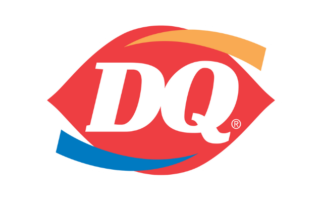There are many rules and regulations in the retail energy markets, especially when it comes to selling energy to consumers or pricing their utility accounts. One of the more important aspects of the pricing process includes getting a signed letter of authorization or exclusivity from your customer prior to pricing their account. In fact, many suppliers will not release pricing information or even begin the process of pricing an account without signed authorization from the customer. Let’s explore both of these pricing tools in more detail.
What Is A Letter of Authorization (LOA)?
An LOA is a letter signed by an energy customer giving an energy broker and/or supplier the ability to obtain historical energy account information from the customer’s local utility. Legally, an LOA is a document signed by a prospect or customer stating that the customer authorizes an energy broker to act on its behalf. Some of the things the customer authorizes in an LOA include:
- allowing the broker to represent the customer with energy suppliers
- allowing the broker (and its suppliers pricing the account) to obtain historical usage data from the local utility
- allowing the broker (and its suppliers) to price the customer’s account(s)
When Is It Needed?
In the retail energy sector, energy suppliers might require a signed LOA from an energy broker’s customer in order to release pricing to that broker. Since energy suppliers are not communicating directly with an energy broker’s prospect or customer, they may require an authorization letter to be signed by the customer in order to show that customer’s intent. In many states, LOA’s are required to custom price any account and must be kept on file by the supplier. Here is a sample of Diversegy’s current LOA.
What Can An Energy Broker Do With An Authorization Letter?
With a standard LOA signed by a customer, energy brokers are able to contact utility companies or energy suppliers on behalf of a customer in order to obtain historical billing data, invoices, or even energy contract copies. Furthermore, a broker is able to price the customer’s utility accounts with one or multiple energy suppliers with a properly signed LOA.
For How Long Is An Authorization Valid?
An LOA is valid for the time period indicated on the document and this period can be negotiated between brokers and customers. In many cases, an energy broker will propose an LOA that does not have an expiration date unless canceled by the customer. This prevents the broker from having to go back to the customer in the future to get a new LOA signed. This becomes important when it comes time to renew energy contracts and for brokers that are planning on having long term relationships with their customers.
Some customers, on the other hand, do not want to give the broker indefinite authorization over their utility accounts. In these circumstances, an LOA could expire in 30, 60, or 90 days. If the broker needs to obtain billing information or price an account after the LOA expires, he/she would need to obtain new authorization.
What Is A Letter of Exclusivity (LOE)?
An LOE is similar to an LOA in the fact that it authorizes an energy broker, and its suppliers, to obtain historical usage information, price accounts, etc. The major difference between an LOE and and LOA is that in an LOE, the prospect/customer names the broker as its exclusive agent or representative for obtaining energy supplier price quotes.
When Is An LOE Needed?
There are many uses for an LOE in the retail energy sector:
- when multiple brokers are pricing the same account with a supplier, the broker with the LOE overrides all other quotes
- LOE’s show energy suppliers that the customer is serious about working with the energy broker
- when another broker is actively pricing an account with a supplier, the supplier requires an LOE for a new broker to price the account
Since retail energy suppliers will not give price quotes to multiple brokers for the same customer, the first broker to price the account with the supplier gets the quote. However, if a broker is able to get a letter of exclusivity from that customer, the broker with the signed LOE will take precedence. Here is a sample of Diversegy’s current LOE.
What Can An Energy Broker Do With A Letter Of Exclusivity?
With a signed LOE, energy brokers are able to perform all of the same tasks that they could with an LOA; however, the LOE gives them more power. With an LOE, a broker can remove other energy brokers from the customer’s account and block those brokers from offering price quotes to the customer directly.
For How Long Is The Exclusive Status Valid?
Similar to a letter of authorization, the LOE is valid for the time period indicated on the letter. Since LOE’s have more teeth, customers may want to limit the broker from having indefinite authority as their exclusive agent. Other brokers use the LOE as a sales tool and will only work with customers who name them as an exclusive agent. If you are looking for more information on how to properly utilize LOEs, contact our support team today.
Need Help On How To Utilize LOAs and LOEs?
In summary, the LOA and LOE are critical components of being a successful energy broker and of the energy pricing process. If you need help further understanding either of these tools, or learning the best energy broker sales processes, contact our team of energy market experts today.





